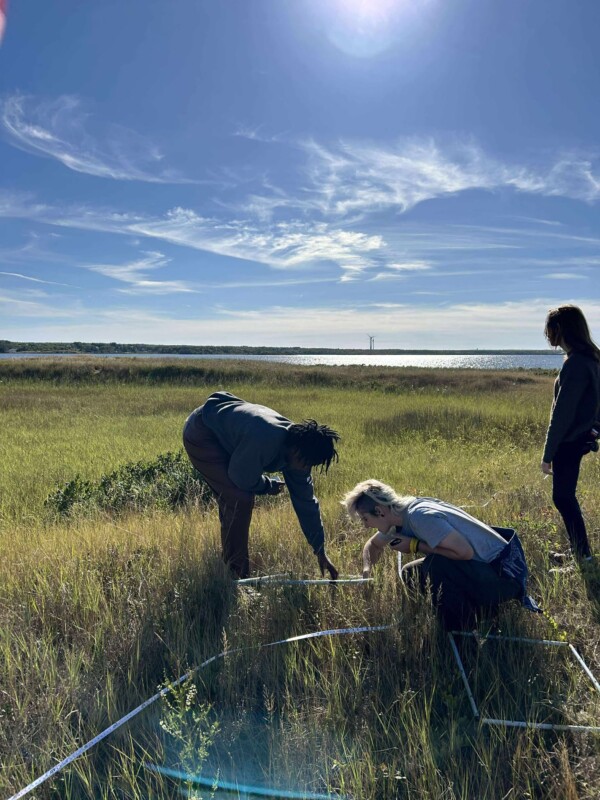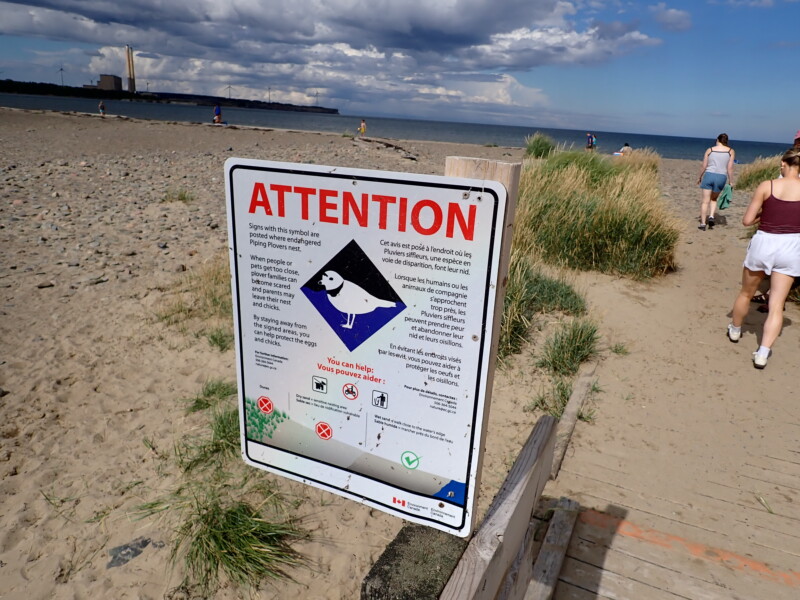Cape Breton University Launches Dominion Beach BioBlitz to Document Coastal Biodiversity and Climate Impacts
 Students and faculty from Cape Breton University have launched the Dominion Beach BioBlitz, a collaborative effort to document biodiversity and track climate change impacts on one of Cape Breton’s most vulnerable coastal ecosystems.
Students and faculty from Cape Breton University have launched the Dominion Beach BioBlitz, a collaborative effort to document biodiversity and track climate change impacts on one of Cape Breton’s most vulnerable coastal ecosystems.
The project brings together upper-level courses in Biology and Environmental Studies, including the Bachelor of Arts and Science in Environment (BASE) Field Course. Working side-by-side, students and faculty are surveying birds, insects, marine invertebrates, vegetation and coastal sediment, with some species observations uploaded to a public online iNaturalist project that community members are also invited to contribute to.
“This project is about more than just counting species,” says Kellie White, co-director of the BASE program at CBU. “It’s a collaborative effort that gives students the chance to do real science while helping our community understand how climate change is reshaping Cape Breton’s coastline.”
Dominion Beach has been dramatically reshaped by recent storms, including Hurricane Fiona, which altered dunes, destroyed the boardwalk and transformed critical wildlife habitat. This summer, Piping Plovers nested on the beach for the first time in years, underscoring both the ecological challenges and conservation opportunities facing the site.
The initiative is supported by partners including the Beaton Institute, which is providing historical context on Dominion Beach, and CBU’s Chemistry faculty, who are analyzing sediment samples to assess potential impacts from coal contamination on the shoreline.
 The BioBlitz will run through the fall, with students sharing results at CBU in December, presenting findings to the community at public events, and showcasing their work at the Science Atlantic Environment Conference at Acadia University in 2026. Researchers also plan to publish results in a special issue of the Proceedings of the Nova Scotia Institute of Science, ensuring the work is shared with the wider scientific community.
The BioBlitz will run through the fall, with students sharing results at CBU in December, presenting findings to the community at public events, and showcasing their work at the Science Atlantic Environment Conference at Acadia University in 2026. Researchers also plan to publish results in a special issue of the Proceedings of the Nova Scotia Institute of Science, ensuring the work is shared with the wider scientific community.